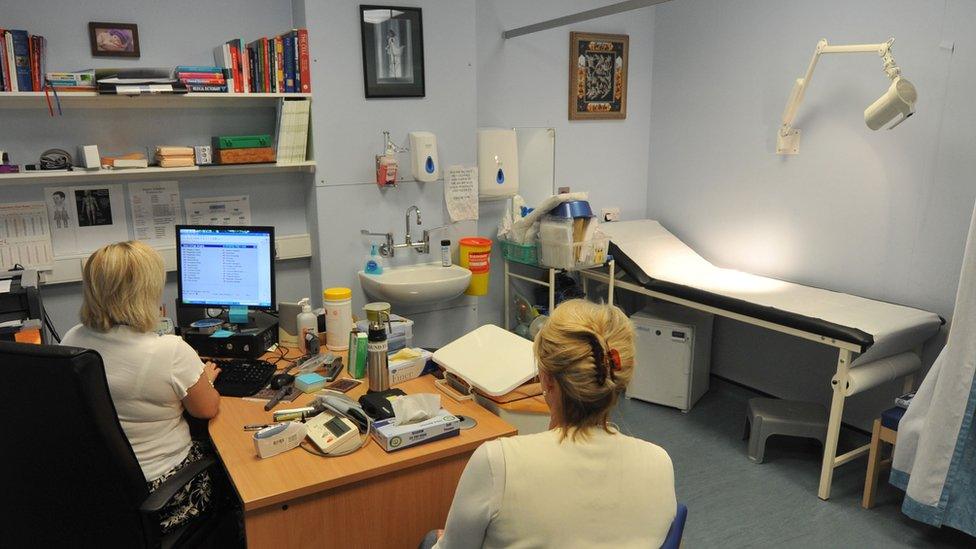Take three steps before visiting GP, public urged
- Published
- comments
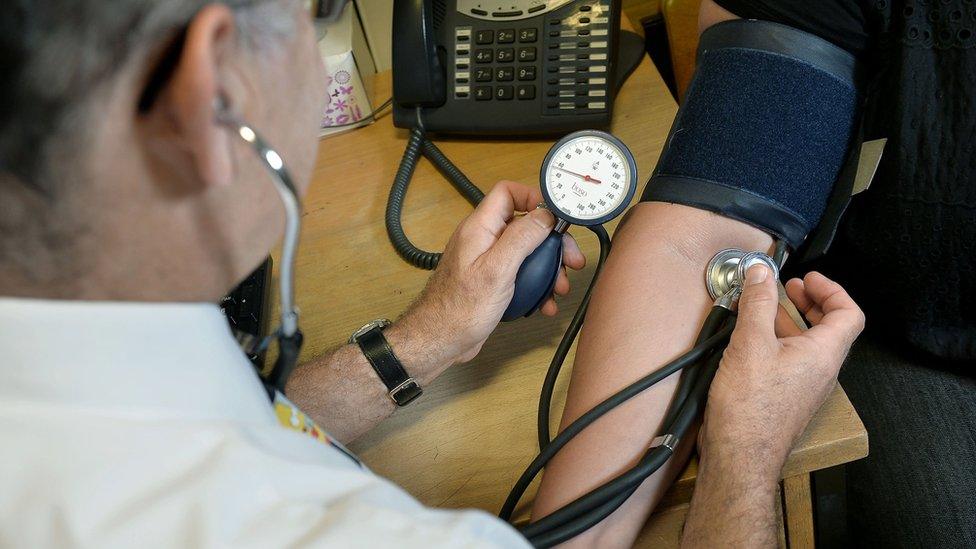
People should take three steps to try to solve a health problem before seeing their GP, a doctors' leader has urged.
Patients should see if they can sort it themselves, see a pharmacist or use a reputable online source of information, the Royal College of GPs says.
GPs "really feel the pinch" over winter because of demand, said chairwoman Professor Helen Stokes-Lampard.
If just 5% of people did not visit their GP, it would "save 50,000 appointments," she told the BBC.
GP leaders say there are not enough family doctors working in England and that practices are closing at an "alarming rate".
Indigestion
According to Professor Stokes-Lampard, "up to a quarter of appointments could be avoidable or sorted out by other means".
She urged patients to adopt the "three before GP" mantra.
"We're just asking people to stop and think, when you reach for the phone to book a GP appointment think: 'Can I do this myself? Do I need some online help? Could a pharmacist help me?'
"Even if 5% of people paused before reaching for the phone... that would save 50,000 appointments, perhaps freeing up a bit of space for those who need them," she told BBC Radio 4's The World At One.
A reputable online source would include NHS Choices, she said, praising the site for its "helpful, sensible advice that's up-to-date, written by doctors and nurses for patients.
"There's nothing more trustworthy than the NHS. The NHS spends a lot of money on that website for very good reason."
But she added: "We're not suggesting for a moment that people shouldn't be seeing their GPs if they need to - that's what we're there for."
"Today over a million people will be seeing a GP around the UK."
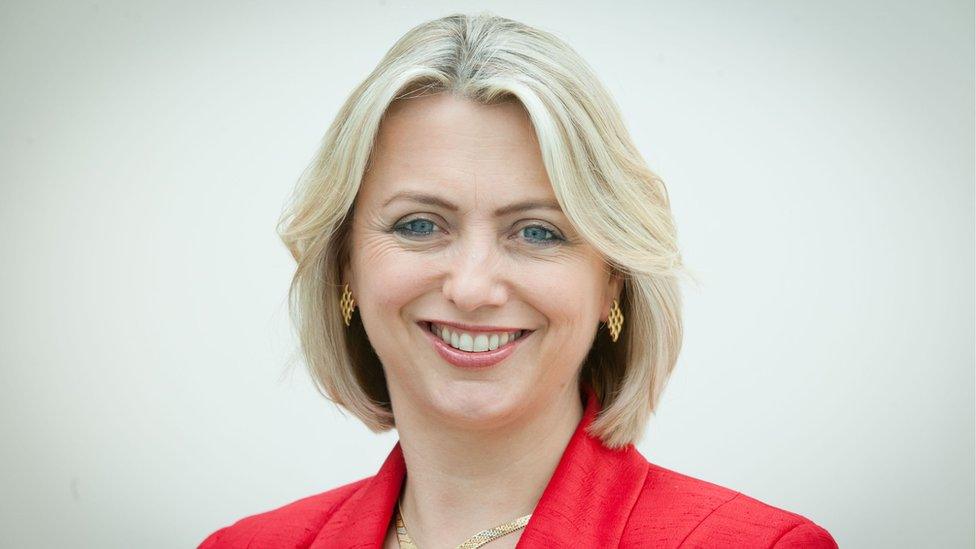
Professor Helen Stokes-Lampard is a practising GP working in the Midlands
The practising GP said people had been visiting her surgery with indigestion over the festive period.
She says: "People eat a bit too much, drink a bit too much, gain a bit of weight and develop indigestion and heartburn.
"That's the sort of thing where a pharmacist could easily signpost them to a range of medications."
She said: "We don't have enough GPs.
"The workload has gone up inexorably because of an ageing population with multiple long-term conditions."
Allow X content?
This article contains content provided by X. We ask for your permission before anything is loaded, as they may be using cookies and other technologies. You may want to read X’s cookie policy, external and privacy policy, external before accepting. To view this content choose ‘accept and continue’.
Neal Patel of the Royal Pharmaceutical Society said pharmacists were the experts on medicines and could help people with questions about winter bugs as well as concerns about side-effects of prescription medicines.
"Even if it is a cough or a cold, don't wait until it gets more serious. Seek advice from your pharmacist," he said.
He added: "Crucially, pharmacists can help you decide when that worrying symptom is something you can manage yourself or when you should seek help."
An NHS England spokesman said: "We do need more GPs."
Newly-qualified doctors were choosing GP training at near-record levels, he said, but this was being partly offset by early retirements so the NHS was also stepping up international recruitment.
The Home Office said it was keeping all immigration routes under review, but said the last time the independent migration advisory committee reviewed whether GPs should be added to the shortage occupation list, they did not recommend including them.
- Published29 December 2017
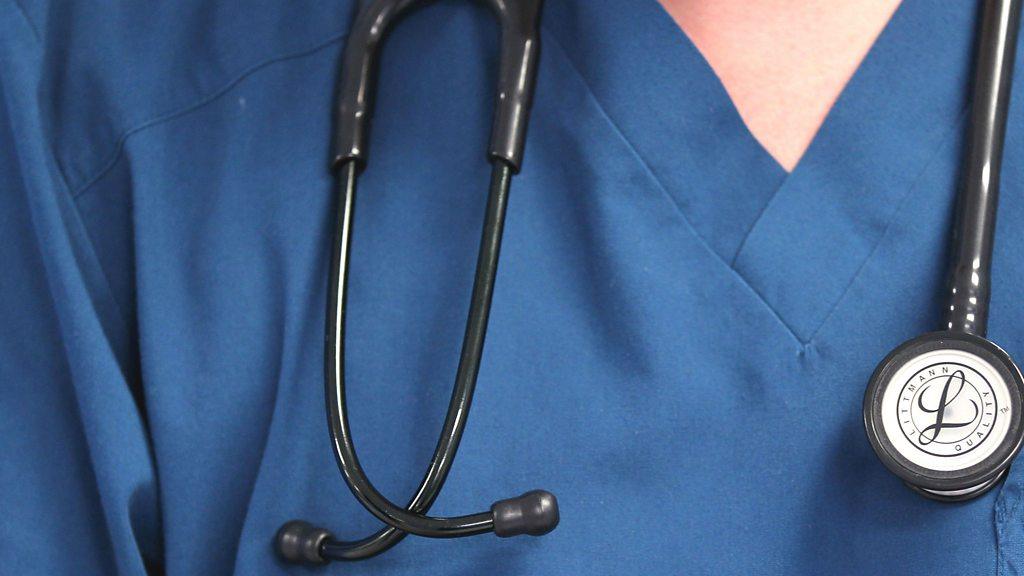
- Published29 December 2017
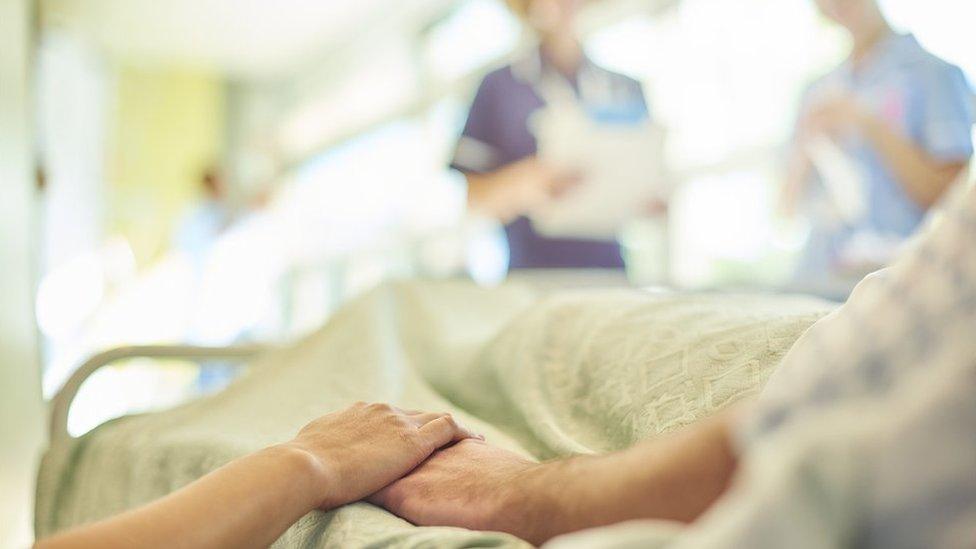
- Published7 April 2017
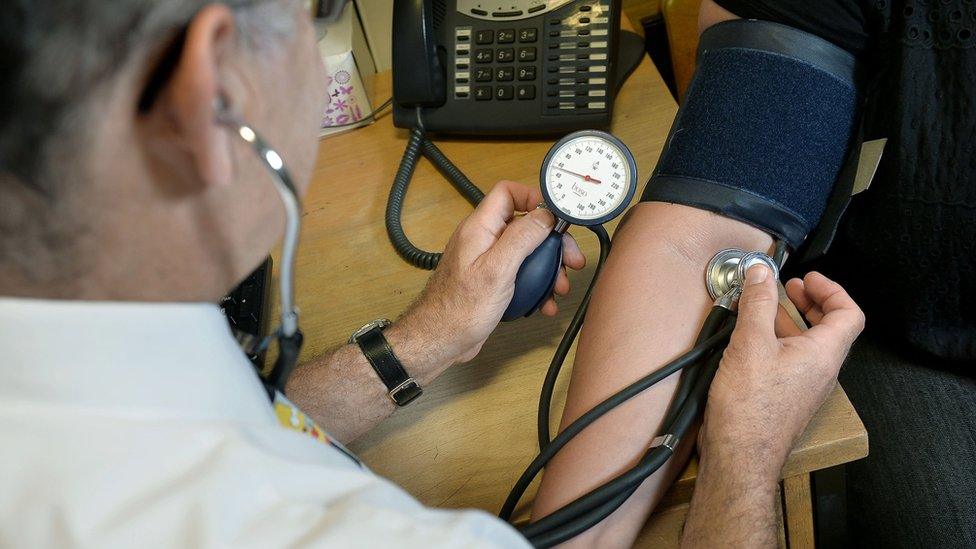
- Published29 November 2017
